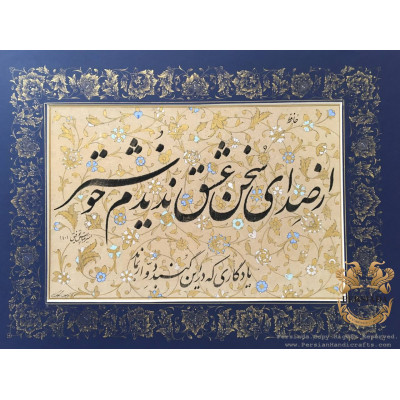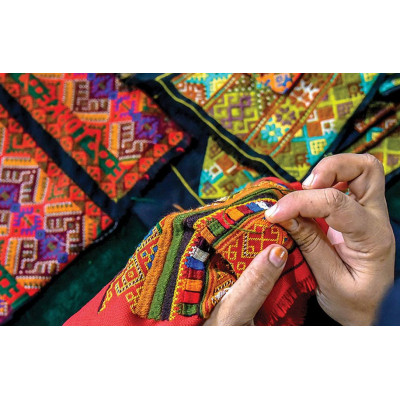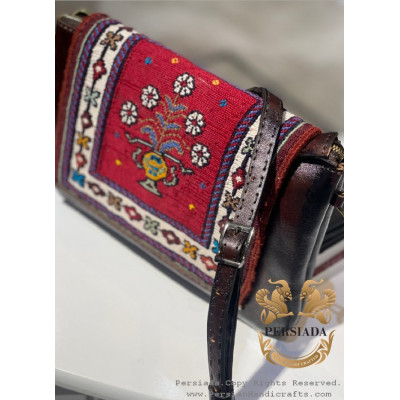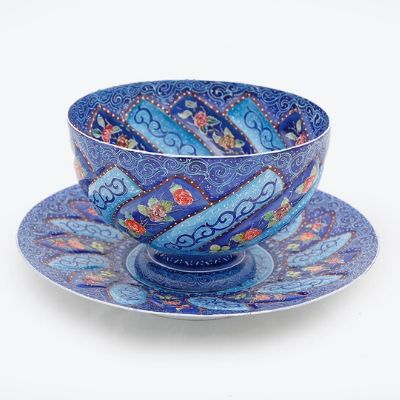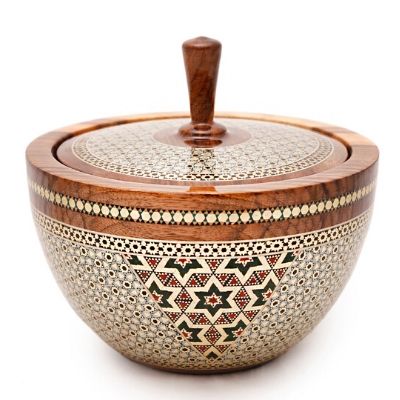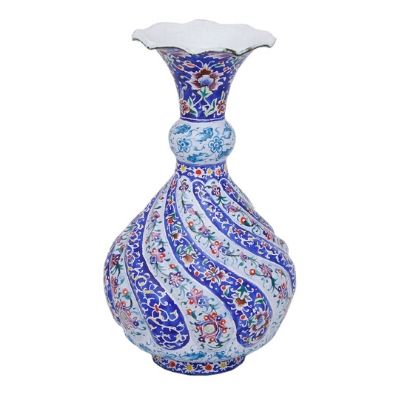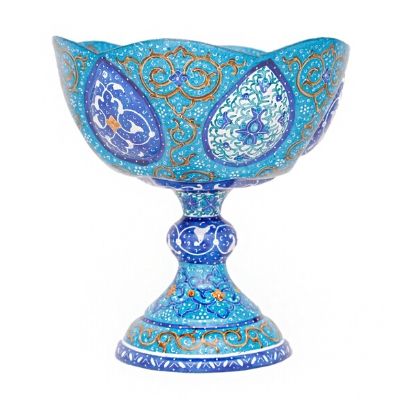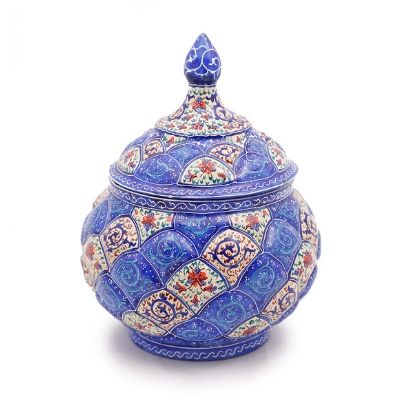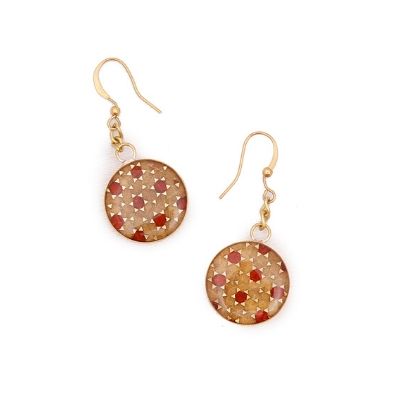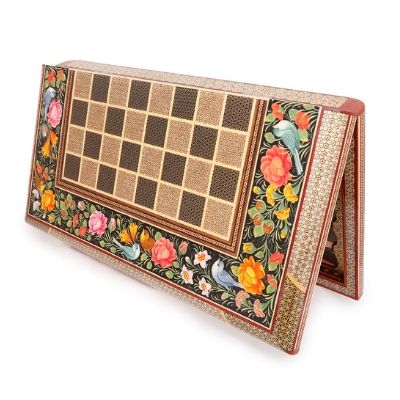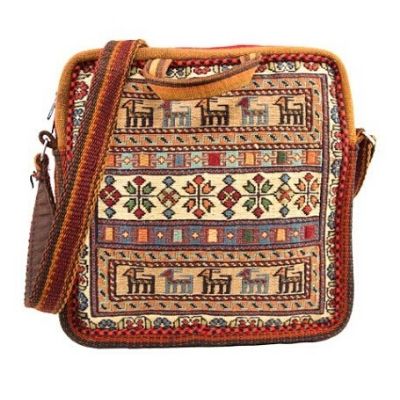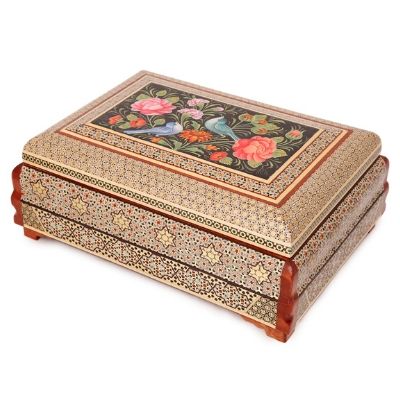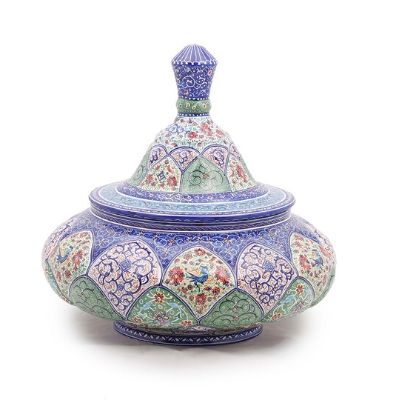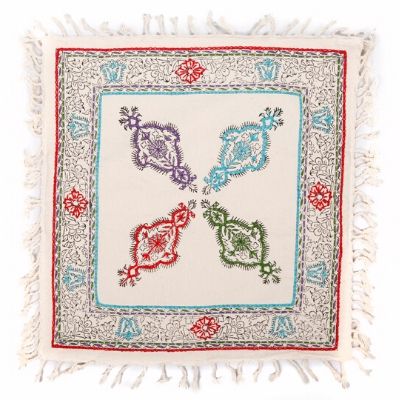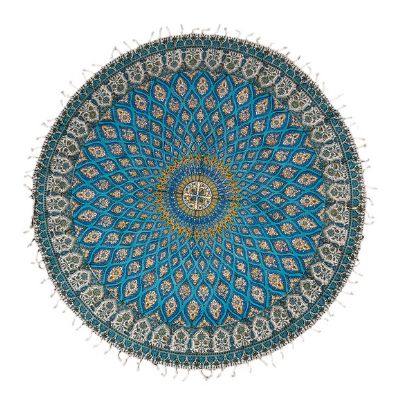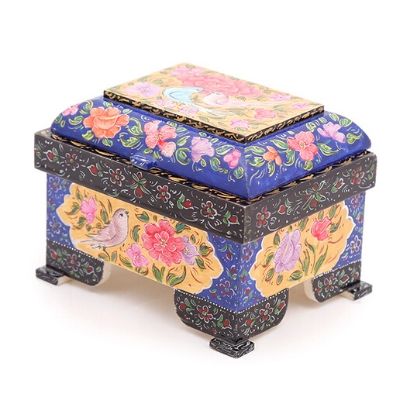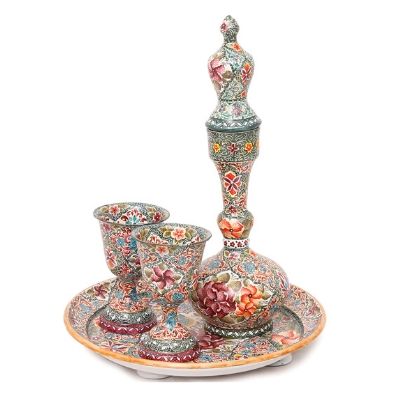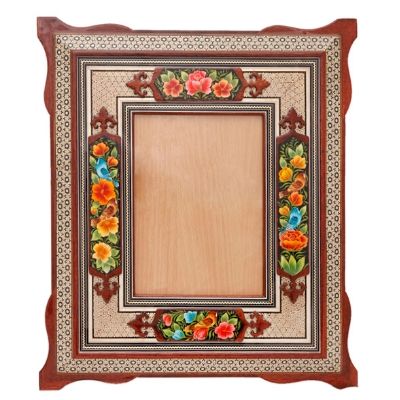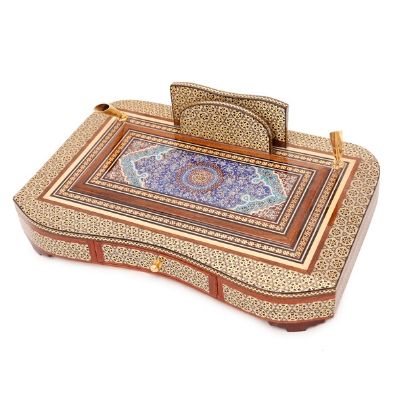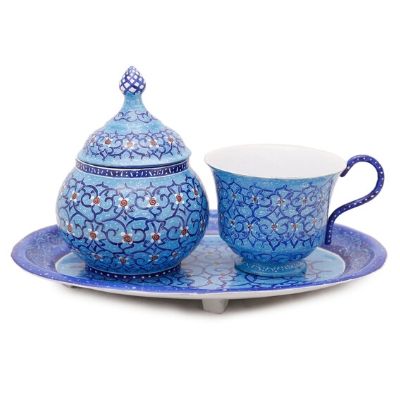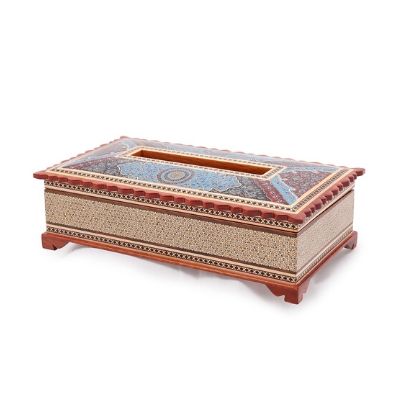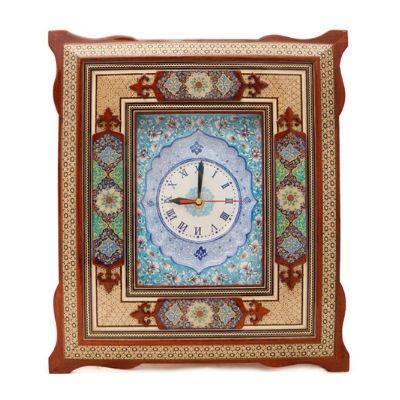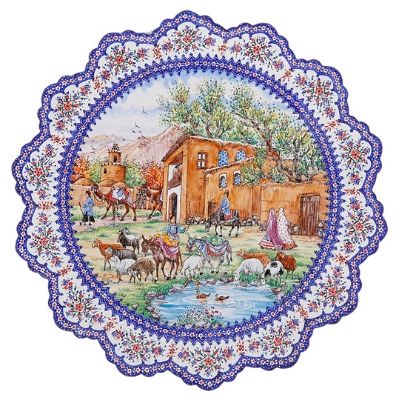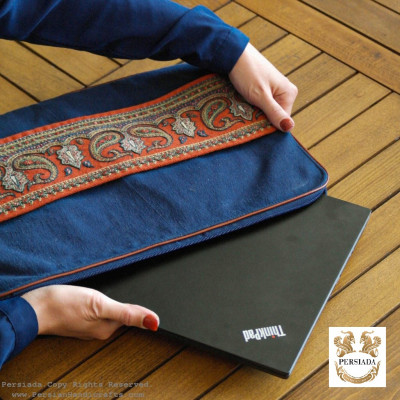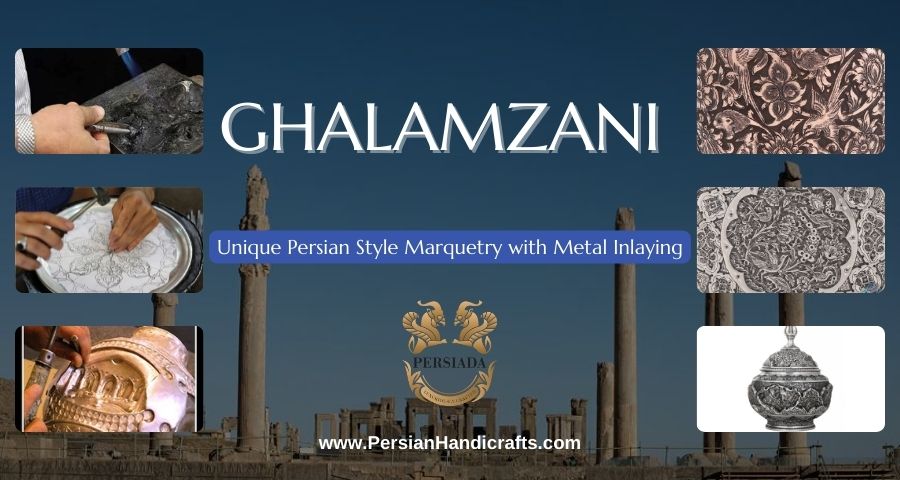
Engraving(Ghalam Zani) is the art of carving superb designs on various metals such as copper, brass, silver and gold. Isfahan is the main centre for engraving. The artistic work of this course made by the artists are the glorious and undeniable indication of Previous metal work of Iran and in particular Isfahan. The historical discoveries belonging to the ancient times as the Sassanide ( 700AD), the Seljuk - (100 AD) and the Safavid (1600 AD) dynasties indicate a few of the outstanding metal work periods. Resuming this art is due to the diligent attempts of the Late Ostad Mohammad Oraizi and the Late Ostad Mohammad Taghi Zufan during the past eighty years , which has bean led to creating tens of outstanding and distinguished metal engravings on the one hand and training the new generation on the other . and Producing golden and silver- like goblets and materials of some metals as nickel silver and Copper in particular. Meanwhile, engraving with various plans and methods have been led to the amount of Engraving production whose current methods include :


1. Outstanding work:
In this work, the job is performed on both sides of the metal making the outstood part on the metal sheet of high appreciation.
2. Half outstanding or relief work:
In this method , the background is hammered down by an engraving steel tool and therefore, the plan on the metal looks outstanding by some extent.
3. Special picture :
In this method , only the lines of the circumference of the design are engraved making tiny and multi – designed background without any outstanding part .
4. Engraving through metal removing :
In this method , some part of the metal is removed by steal tools depressing the metal . In special cases , ( if copper has been covered by tin ) the red color shine and gloss of copper Can be observed beside the silver color of tin . this method is considered to be the oldest Among all the methods of engraving being performed in a similar course known as carving without hammer.
5. Latticing:
By removing some whole parts of the metal , a netted shape will be created which is Performed by cutting tools and hammer creating a job like latticing with hack saw.
6. Kuftehgari or gold blocking:
This is an excellent pattern of engraving along which the circumference lines of the plan are carved placing new soft metals in their groves . this method is mostly performed on steel.
The introductory periods are all similar in the steps above. First, selecting the metal.Then tar covering of behind the metal to absorb the shock of the hammer. After that , it is time to make designations on the material . And at last, engraving with different sorts of tools whose result will be decorating the metal with geometric and miniature designs which will be created through engraving, grazing or pressing the metal surface.



The artistic movement of the engraver s hand and the harmonized blows of the hammer and engraving tool will be finally led to creating a unique job. However, the decorations and embellishments are going to be performed on material which has already been shaped with hammer and anvil by another skillful artist. Metalworking masters are those who work with different sorts of metal sheets shaping them in to beautiful dishes, vases, boxes, samovars, and etc. and preparing them to be engraved. Nowadays, due to the hard job and old getting of the masters, the preparation of the metal dishes is sometimes getting performed by machinery.
The intricate process of creating each and every piece requires extensive skill, talent, and patience extended by the artists. Numerous tools and materials, such as chisels, hand-made instruments, hammers, etc. are utilized by the artisans to emboss and engrave the most detailed and complex of designs on the various types of metals. Different scenes from nature, animal and human shapes, flower and plant patterns, hunting grounds, etc., are some of the many aesthetic images hand-portrayed and carved on many kinds of Ghalam Zani pieces.Application of heat, Waxes, dyes, sanding and polishing materials are some of the other processes used in creating these masterpieces.The enchanting Ghalam Zani handicrafts are made in the shape of decorative trays, plates, vases, pitchers, etc. This magnificent art has a long history dating back to more than several thousand years ago. Excavated Ghalam Zani artifacts belonging to the Sassanian, Saljoughi, and Safavid eras are currently displayed at various museums across the world.
Be the First one to find the Latest Crafts & Offers on:
We love to help. WhatsApp us for Quick Response:
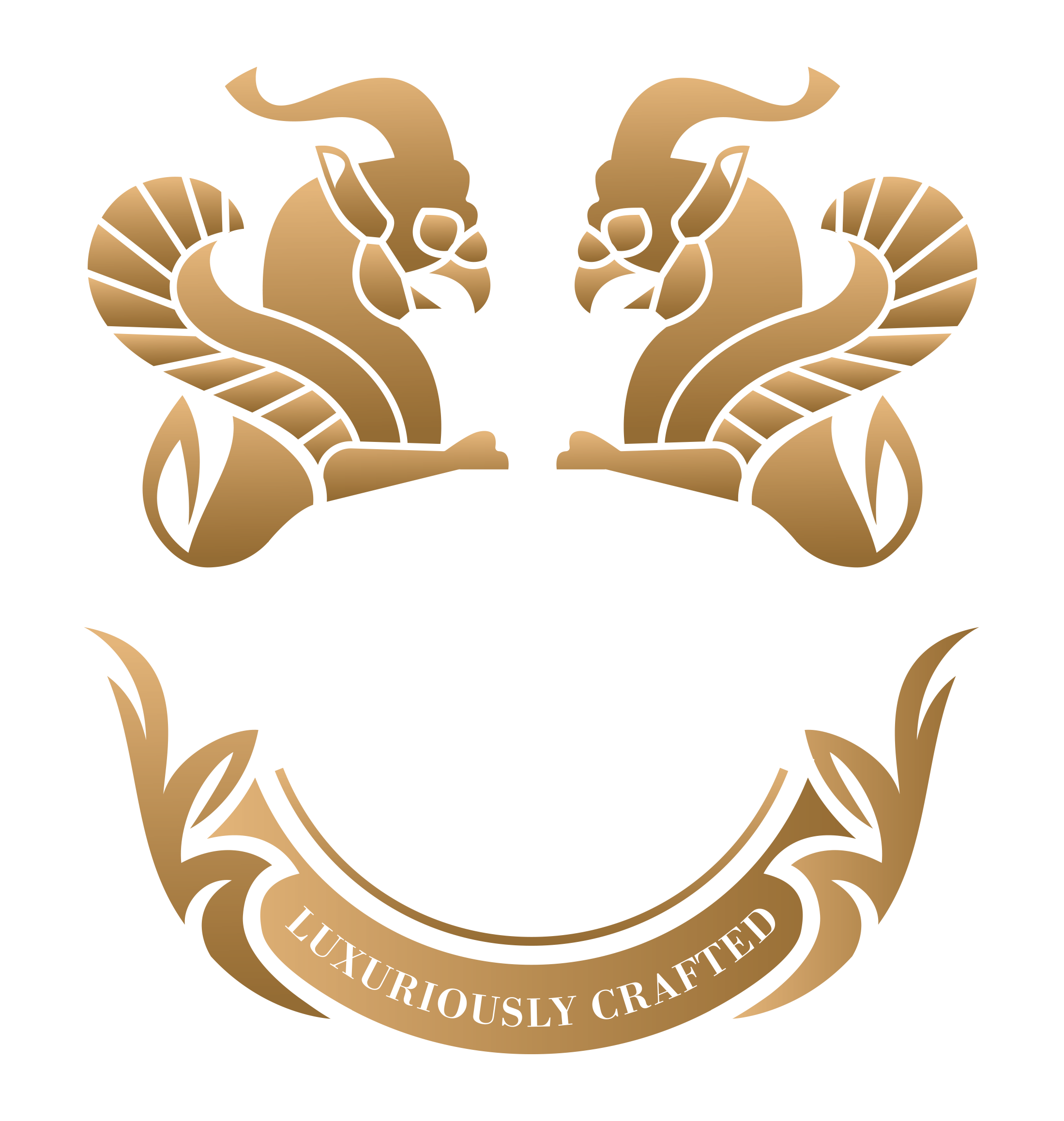
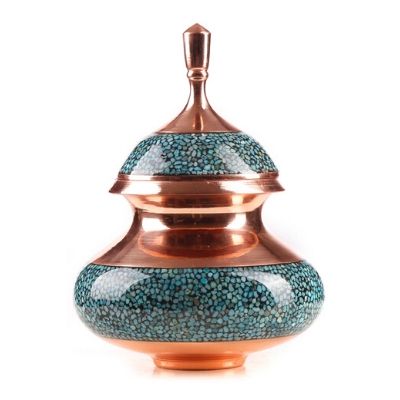
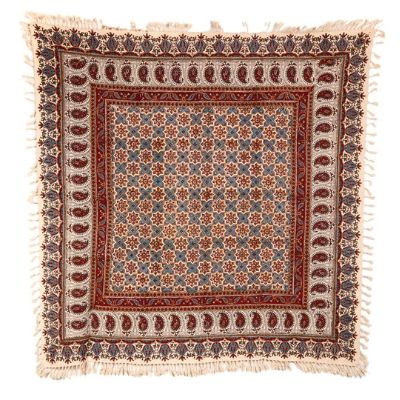
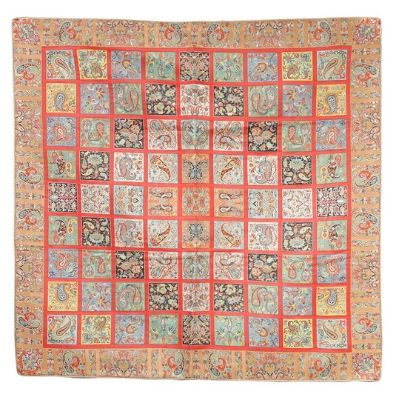
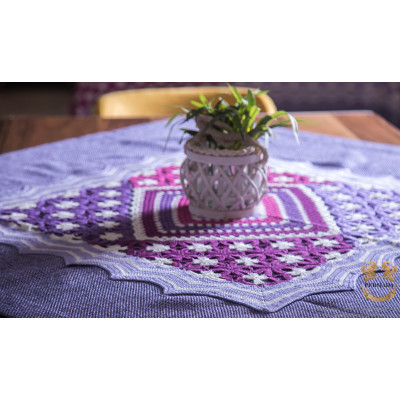
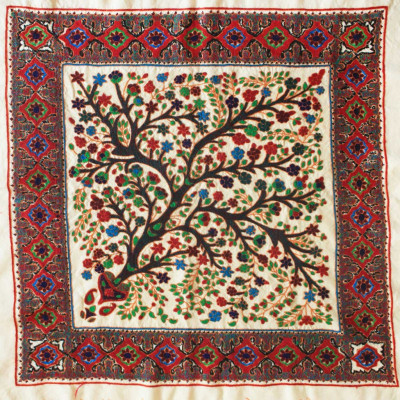
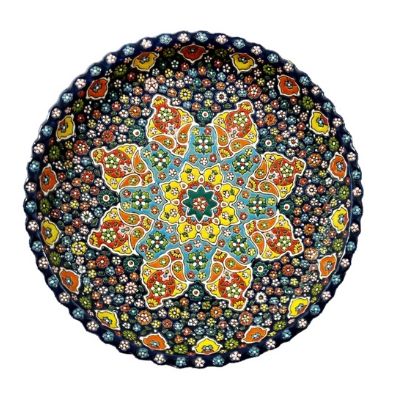
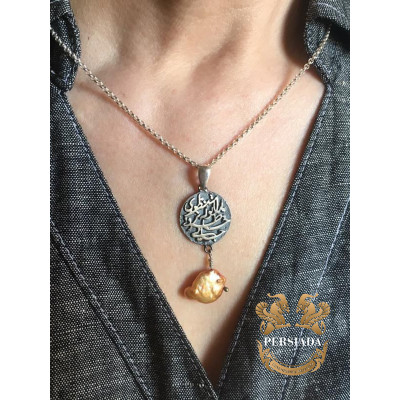
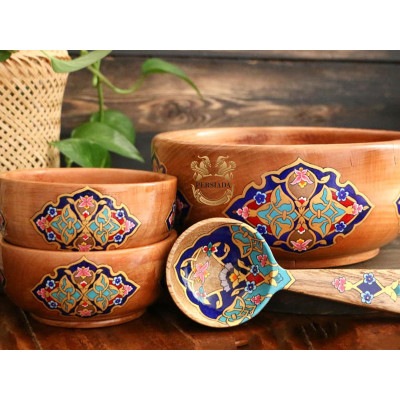
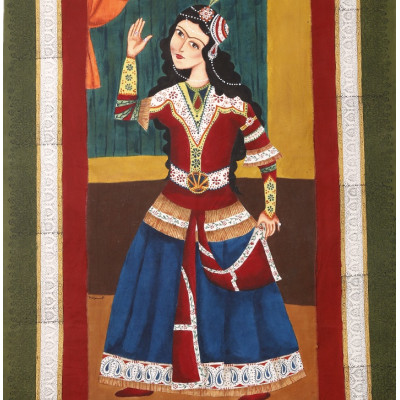
-400x400.png)
